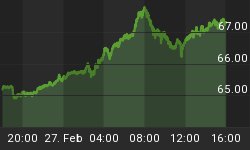Despite their Hallmark-esque TV commercials highlighting their customer-first priorities, banks aren’t exactly the wider public’s favorite institution, and the aftermath of the pandemic is bringing into clearer focus.
Even though banks are singing their own praises with regard to their handling of the pandemic, with plenty of odes to their efforts to help out those in need, the Federal government doesn’t necessarily agree.
Earlier this week, the six largest bank CEOs appeared before the Senate for a banking committee hearing on the oversight of Wall Street firms. The focal point was the fact that the COVID-19 crisis did not threaten bank profitability; yet, banks failed to do much of anything to help out ordinary people during the pandemic.
Unlike the 2008 financial crisis, when 27 banks went under, the pandemic barely touched the six largest banks from a comparative perspective.
The industry as a whole posted $147.9 billion in profits in 2020, which is a 36.5% decline from the prior year. And unlike other industries, the six biggest banks posted decent profits in 2020, led by JPMorgan with $29.1 billion, Bank of America with $17.9 and Wells Fargo with $3.1 billion.
And when the economy started to recover at the end of last year, banks did, too--many of them beating estimates for Q1 2021.
In addition to that, most bank CEOs saw their paychecks inflated in 2020.
Still, the CEOs told the Senate Banking Committee that they helped small business owners and worked to narrow the racial wealth gap, among other things.
Senator Elizabeth Warren wasn’t buying it. She called such statements of charity by big banks "a bunch of baloney."
"No matter how you try to spin it, this past year has shown that corporate profits are more important to your bank than offering just a little help to struggling families even when we're in the middle of a worldwide crisis," Warren said.
Warren and other Democratic senators viewed the high bank profits as a sign that banks collected excessive amounts of fees and interest from consumers and businesses during the pandemic.
The banks typically charge overdraft fees when the customer overdraws on their checking account. Rather than allowing a debit card to be declined or a check to bounce, the bank will cover the difference and charge an overdraft fee, usually about $30 to $35.
The Senate particularly focused on JPMorgan Chase’s policy of overdraft fees, saying the bank collected $1.46 billion in overdraft fees during the crisis.
But JPMorgan is not alone in it as America’s big banks make more than $11 billion worth of overdraft and related fees every year.
While a few banks decided to waive those fees (overdraft banking fees, specifically), it still cost consumers $12.4 billion in 2020. Without stimulus payments, estimates are that losses would have been triple last year as overdrafts would have been far more frequent.
None of the 10 largest banks offered any sustained relief from overdraft fees during the crisis.
On the contrary, last year, TD Bank agreed to pay $122 million to settle claims related to overdraft abuse. Then, in March, Bank of America agreed to pay $75 million to settle a lawsuit accusing it of extracting overdraft fees it didn't earn from customers.
Several studies on the subject reach a consensus: Most overdraft fees are paid by Americans with low credit scores, people of color and by Americans living in relatively low-income neighborhoods.
By Michael Kern for Safehaven.com
















